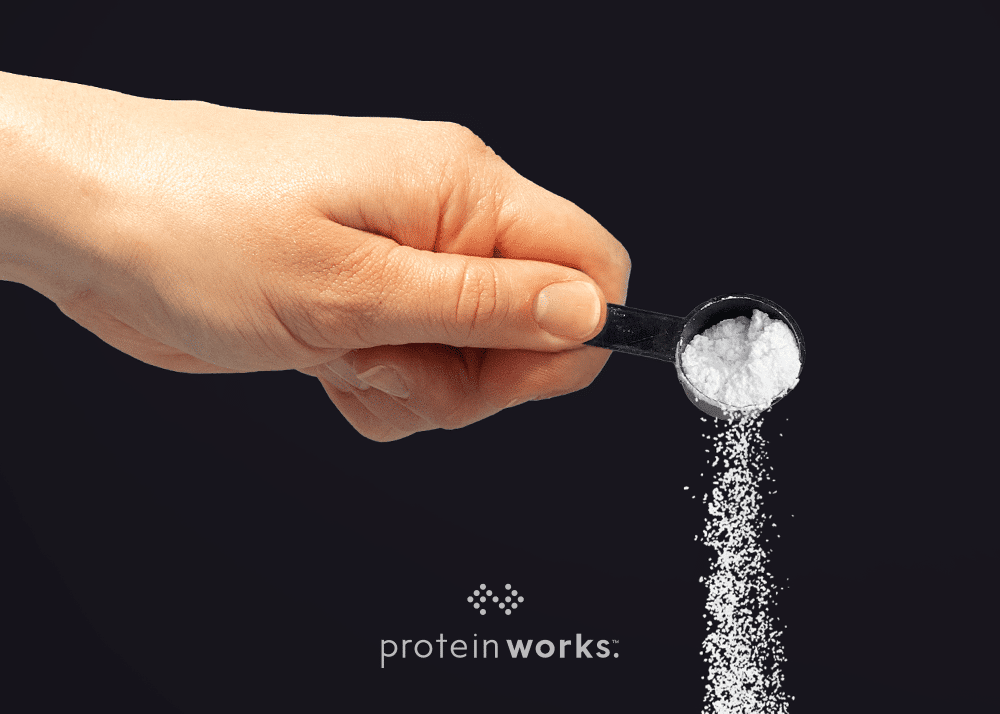
Can Bulking Make You Fat?
You may not be a Bodybuilder, but if you’ve ever stepped foot inside a gym then chances are you’ve heard the term “Bulking” or “Bulking up” being thrown around, most likely, along with some heavy dumbbells.
Some will claim it is the definitive way to add solid slabs of muscle to your frame, whilst other will argue that the only thing you gain is wobbly flabs of fat.
So, which is true? Is bulking the answer to transforming your body or is it just another gimmick that is built on bodybuilding folklore?
Before we get in to it, let’s first define what we mean by bulking up?
 What is bulking up?
What is bulking up?
The term “Bulking” is often used to describe the period of time dedicated to building muscle mass in the sport of Bodybuilding. It is typically done after a period of “cutting” (a.k.a dropping body fat) or “maintenance” (a.k.a maintaining weight).
The purpose of bulking is to intentionally consume more calories than your body requires to push you into a calorie surplus and ultimately increase your overall muscle mass.
In order to do this effectively, it needs to be done alongside an intense and programmed workout that is tailored to the same goal.
If I’m eating excess calories, surely that will lead to fat gain?
Yes and No.
When you do a “Bulk”, gaining fat is inevitable, but how much fat you gain depends on how you go about your eating habits when trying to pack on muscle mass.
Bulking can be done in two ways: Calculated or Dirty
- A “Calculated Bulk” is carried out by calculating how many calories you need in order to be in a sufficient but small surplus, allowing you to move it into a muscle building state. Once you have your calorie target set, you would then reach this target by eating a range of predominantly nutritious foods, making sure to hit your protein, carb, fast and micronutrient needs throughout the day.
- A “dirty bulk” refers to creating a calorie surplus by eating anything and everything in sight, paying little attention to macro or micro nutrients, leaving no chance of ending the day without having achieved a calorie surplus. It is often used as an excuse to eat all the foods you typically avoid when looking to drop body fat.
You probably don’t need me to tell you which of the above approaches is more likely to have you adding on those extra unwanted (and unnecessary) layers of fat.
When establishing you calorie requirements, it is typically recommended to aim for a calorie surplus that is 10-20% of you current maintenance calorie requirements. (1)
If you are currently maintaining weight on 2,000 calories, then you’d be looking at 2,200 -2,400 calories for your bulk.
 How to bulk with minimal fat gain
How to bulk with minimal fat gain
So, you know to approach your bulk with a calculated method, but what else can you do to ensure at the end of your bulk your walking away with extra muscle and not fat?
Don’t dismiss cardio
It may seem counter-intuitive to burn calories through cardio when you are trying to achieve a calorie surplus, but keeping cardio in your training regime will help with blood flow and transporting essential nutrients to your muscles, helping promote growth and recovery – meaning a reduction in DOMS and getting you back to lifting again and building muscle quicker.
Focus on getting stronger
A common mistake people make during their bulk is putting too much focus on the number they see on the scales. Shifting your focus from getting heavier to getting stronger, whilst on a calorie surplus and implementing a training programme that provides progressive overload, and sufficient intensity will see you benefiting from both strength and hypertrophy gains .
Slow and steady
Starting a bulk is not a decision to be taken lightly, both literally and metaphorically. If you want to achieve some substantial muscle building results then you need to be willing to stick to it long term.
Typically, you want your bulk to last at minimum around 4 months, but can be anywhere up to 12 months long. The reason behind this is to add weight slowly, to help minimise any additional weight gain from body fat, with the recommended rate of adding muscle mass is between 0.25-0.5% of your bodyweight per week.
- Lambert CP, Frank LL, Evans WJ. Macronutrient considerations for the sport of bodybuilding. Sports Med. 2004;34(5)


 What is bulking up?
What is bulking up?  How to bulk with minimal fat gain
How to bulk with minimal fat gain

No Comments yet!